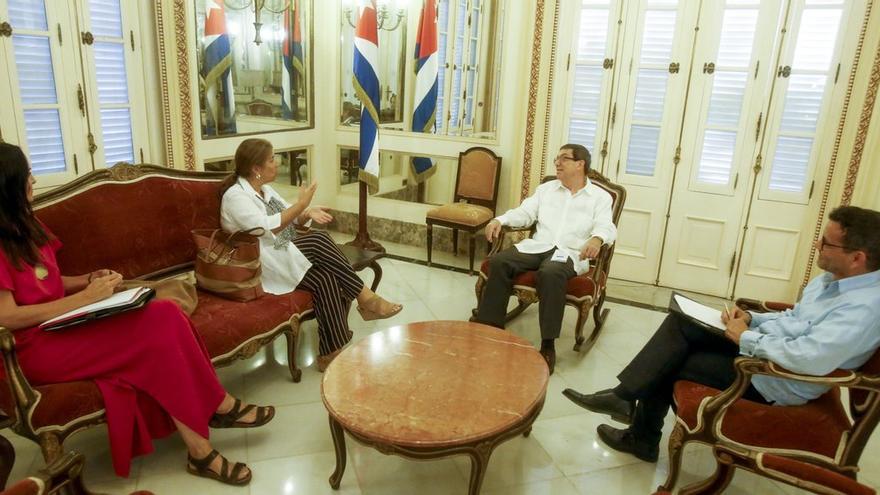
![]() EFE/14ymedio, Havana, 16 September 2022 — The Cuban Minister of Foreign Affairs, Bruno Rodríguez, ratified this Friday the “will” to continue with the Political Dialogue and Cooperation Agreement (ADPC) with the European Union (EU) by receiving the ambassador of the community bloc in Havana.
EFE/14ymedio, Havana, 16 September 2022 — The Cuban Minister of Foreign Affairs, Bruno Rodríguez, ratified this Friday the “will” to continue with the Political Dialogue and Cooperation Agreement (ADPC) with the European Union (EU) by receiving the ambassador of the community bloc in Havana.
Rodríguez published the images of the meeting at the headquarters of the Chancellery with the diplomatic representative of the European Union in Cuba, Isabel Brilhante, and added, via Twitter, as he usually does, without further details: “We confirm the importance we attach to Cuba-EU relations and the potential that exist in various areas.”
Cuba and the Twenty-seven relaunched their relations in 2016 with the signing of the ADPC that put an end to 20 years of the so-called “common position,” which was much tougher against the Havana regime. In any case, the pact is conditioned by the EU on the situation of human rights and democracy on the Island.
The negotiations between the Cuban government and the EU were tense last March, after the representative of the European Union for Foreign Affairs, Josep Borrell, reiterated the call “to respect human rights and freedoms,” to which the agreement is subject, in theory. Nor was it a good sign that the European Chancellor demanded that “all political prisoners” be released on the Island.
“The EU is following with great concern the sentences in Cuba against people involved in the events of July 11 and 12 [2021],” Borrell said on behalf of the Twenty-seven.
In response, the Cuban foreign minister “strongly” rejected Borrell’s statements and affirmed that the European bloc lacks “moral authority to make value judgments about the Cuban reality.”
Rodríguez said at the time that the EU “should deal with its own problems and the frequent human rights violations in its member states.”
The EU has defended the right to demonstrate and asked Havana to listen to the demands of its citizens who say that the trials don’t comply with international standards and ask the Cuban regime to allow European diplomats to attend them.
Translated by Regina Anavy
____________
COLLABORATE WITH OUR WORK: The 14ymedio team is committed to practicing serious journalism that reflects Cuba’s reality in all its depth. Thank you for joining us on this long journey. We invite you to continue supporting us by becoming a member of 14ymedio now. Together we can continue transforming journalism in Cuba.
